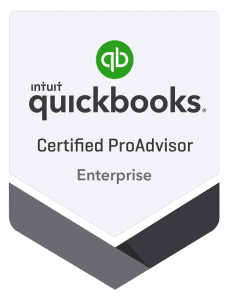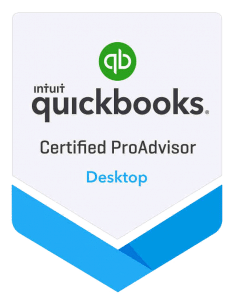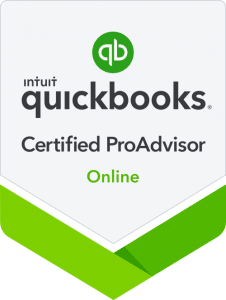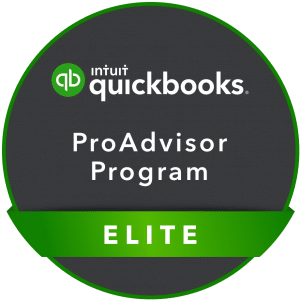Expenses are something every small business owner encounters regardless of what type of company they run. It can be challenging for small businesses to stay on top of paying their expenses. Around 43% of business owners say they struggle to pay their operating costs.
Tracking your expenses is essential when it comes time to file your taxes. It’s important to know what to do when you incur an expense and how to track it. The goal is to reduce your taxable income for the year so you owe less in taxes and keep your accounting books in order.
This blog will talk about the different expenses you can experience as a small business owner. We’ll also discuss the best way to track them to make your life easier.
What Is a Business Expense?
A business expense is any necessary and ordinary cost that you incur to run your business. Some examples of business expenses include:
- Lease, rent, or mortgage payments
- Utilities
- Internet and telephone
- Business insurance
- Office equipment
- Marketing expenses
- Employee costs
- Business fees
Business expenses are broken up into three major categories. These include:
- Fixed:Overhead costs that stay the same
- Variable:Costs that can change, such as utilities or shipping fees
- Periodic:Expenses that happen at different points during the year
Operating Expenses
Many of the expenses we mentioned above are considered operating costs for your business. These expenses are associated with the day-to-day operations of your organization. They’re needed for your business to operate and make money.
Non-Operating Expenses
Non-operating expenses are costs that aren’t tied to your business’s primary activities. They’re not incurred in the production of your services or goods. However, they may be necessary for your business to operate.
Examples of non-operating expenses include:
- Taxes
- One-time expenses, like legal fees
- Interest on credit lines or business loans
Why Should I Categorize My Expenses?
Organizing your business expenses into different categories helps track them. That method can also help you determine if you’re seeing losses or profits during a specific period. Other benefits of organizing your business expenses include:
- Tracking where you spend money to determine where you can cut costs
- Lower your tax bill
- Make smart choices for your business
- Improve your business budgets
- See where you’re spending money in different areas of your business
There are a few general categories you can organize your expenses into. They include:
- Utilities
- Insurance
- Office supplies
- Advertising
- Taxes
- Legal fees
- Payroll
- Maintenance and repairs
- Bank fees
It makes it easier to track your expenses once you’ve determined what categories you want to work with.
How to Track Business Expenses
There are a few best practices to keep in mind when trying to track business expenses. Let’s talk about some of the best ways to do that.
Have Separate Bank Accounts
You shouldn’t run your business expenses through your personal bank account. Doing so makes a complicated situation and makes it more challenging to sift between your personal and business expenses. Ensure clear financial boundaries and simplify your tax reporting by creating a business checking account as soon as you start your company.
A few of the business accounts you should open include:
- Business checking account
- Business savings account
- Merchant services account
The merchant services account is needed if you accept card transactions from your customers.
Use Business Credit and Debit Cards
Having dedicated debit and credit cards makes it even easier to track your business costs. You can also use Quickbooks™ to categorize your credit and debit card transactions into your predetermined categories.
You might want to explore getting a business credit card that offers you points, rewards, or cash back on your purchases. These types of cards are a great way for you to receive additional benefits on top of being able to stay on top of your expenses.
Another benefit of getting a dedicated business credit card is establishing a credit history for your company. Creating a credit history makes it easier for you to apply for financing without bringing your finances into the mix.
Credit cards make it easier for some businesses to negotiate better agreements with their suppliers. You can also protect your organization against identity theft by using a credit card.
File Invoices and Receipts Digitally and Physically
It’s important to organize all invoices, receipts, and bank statements. You want to make them easily accessible for audits and tax reporting. You should have physical and digital copies of each item.
It makes it harder to claim expenses on your taxes without having a paper trial. Some ways you can organize your receipts include:
- Using file folders
- Keep receipts in a separate compartment of your bag or wallet
- Organizing in binders
Keep in mind that the IRS requires that you keep all paper documents, like receipts and bank statements, for at least three years. Use folders and filing cabinets to store all paper items. Write down why you made each purpose on the receipt and if a client was present.
Use Expense Tracking Software
Modern accounting software solutions, like Quickbooks, automate a large portion of tracking your expenses. Not only does this save you a lot of time, but it eliminates a lot of human error that can happen while manually tracking your expenses.
Some of the benefits of using accounting software include:
- Automatically send statements and invoices to your clients
- Track your inventory
- Cloud-based access
- Free mobile apps that automatically sync
- Download transactions from your credit card and bank accounts
- Easy to learn and use
Invest in Bookkeeping Software for When You Incur an Expense
Every business will incur an expense regularly. Creating processes is the best way to stay on top of your spending and track your profit margin. Maximize your tax return by deducting as many expenses as possible on your yearly taxes.
Our bookkeeping experts at Cloud Bookkeeping are here to make it easier to track your business expenses. Our certified Quickbooks advisors will help you leverage the software to streamline your operations. Get in touch with us to schedule a consultation with one of our specialists.





